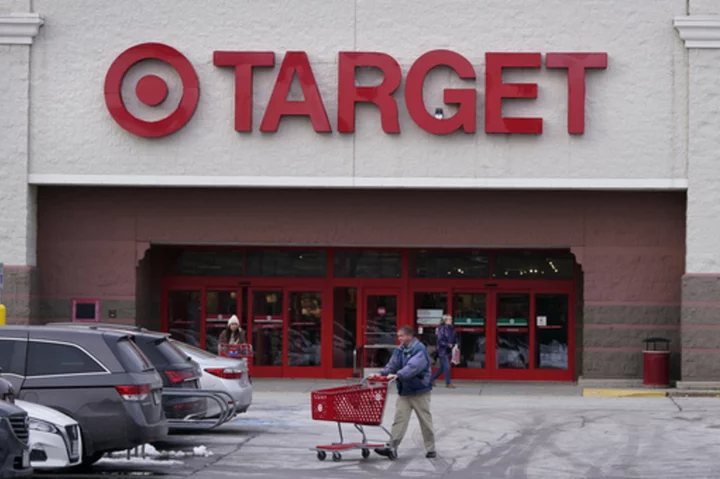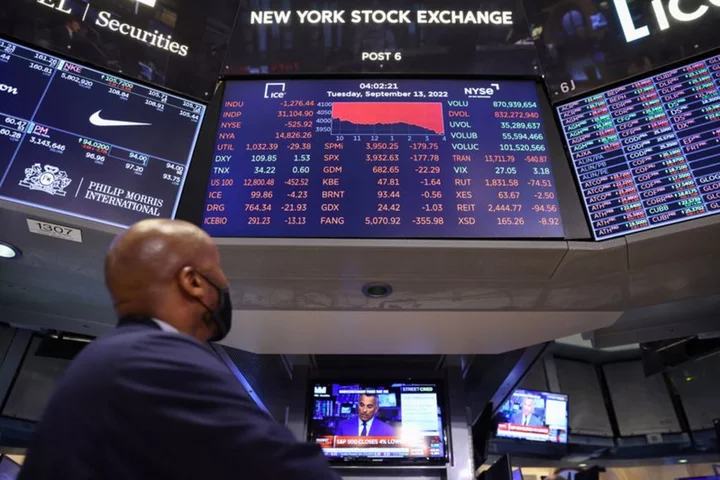NEW YORK (AP) — Target on Wednesday reported better-than-expected profits in its third quarter, benefiting from its efforts to hold down costs. Revenue slipped more than 4%, however, with customers absorbing higher costs from inflation as the holiday shopping season nears.
The Minneapolis retailer has been trying to right itself after loading up with too much inventory last summer. And now, a surge in prices for everything from food to gasoline, although easing, is taking a bigger chunk out of shoppers' paychecks.
“It’s clear that consumers have been remarkably resilient,” CEO Brian Cornell told reporters Tuesday. "Yet in our research, things like uncertainty, caution and managing a budget are top of mind."
Target reported third-quarter profit of $971 million, or $2.10 per share. That compares with $712 million, or $1.54 per share, in the year-ago period. Revenue fell 4.2% to $25.4 billion from $26.52 billion in the year-ago period.
Analysts were expecting a profit of $1.47 per share on revenue of $25.29 billion in the quarter, according to FactSet.
Cornell noted that higher interest rates, increased credit card debt and reduced savings rates have left customers with less discretionary income, forcing them to do trade-offs. For example, he said that the chain is seeing more consumers making last-minute purchases on such items as gas. And instead of buying sweatshirts or denim in August or September, they're now waiting until the weather turns cold.
Target has been cutting back its orders of discretionary purchases like clothing and trendy home furnishings in favor of beauty items and necessities like food. As of the end of the third quarter, inventory was down 14%, the company said. To entice shoppers to buy this holiday season, Target said it will offer more than 10,000 new items for the holidays, with thousands of gifts under $25, and thousands of exclusive-to-Target items across many areas.
It is among the first major U.S. retailers to report quarterly financial results, and analysts will be dissecting a raft of quarterly reports from Walmart and other retailers to get more clues about shopping behavior in the final weeks of the year.
Target is more vulnerable than Walmart and other big box discounters. More than 50% of Target’s annual sales come from discretionary items like toys, fashion and electronic gadgets, according to the company’s latest annual financial report,
It also got up caught up in cultural wars this past summer when it angered shoppers with some of its Pride merchandise, and then received blowback from other customers for cutting back on its offerings.
Target has also said that its profits have been hurt by rising theft at its stores. In late September, the retailer announced that it would close nine stores in four states, including one in New York City’s East Harlem neighborhood, and three in the San Francisco Bay Area, effective Oct. 21. It noted that theft and organized retail crime have threatened the safety of its workers and customers.
Its third-quarter comparable sales — those from stores or digital channels operating for the past 12 months — fell 4.9% in the most recent quarter. That metric was down 5.4% in the fiscal second quarter and in the fiscal first quarter, sales were unchanged.
For the fourth quarter, Target expects comparable sales in a wide range around a mid-single digit decline, and earnings per share of $1.90 to $2.60 per share. Analysts are expecting $2.23 per share.









